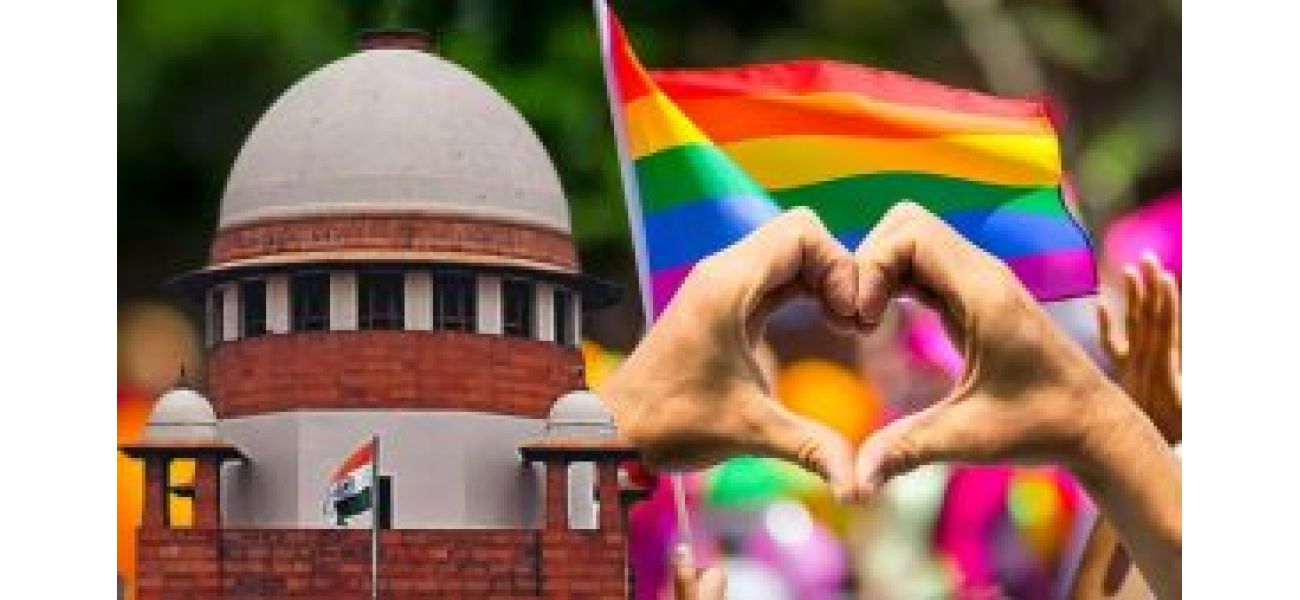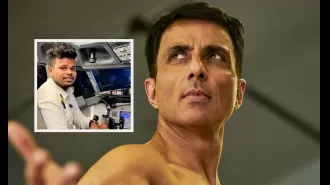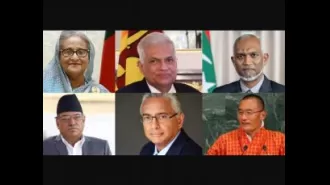Supreme Court dismisses review appeals against same-sex marriage ruling, stating no need for further involvement.
India's Supreme Court rejected a batch of petitions seeking review of its 2023 decision to not legally recognize same-sex and queer couples.
January 9th 2025.

In a recent development, the Supreme Court of India has delivered a major blow to those advocating for marriage equality in the country. A bench of five judges, led by Justice BR Gavai, rejected a batch of pleas seeking a review of the court's previous decision in October 2023. This decision had denied granting any legal recognition to same-sex and queer couples in India, much to the dismay of the petitioners.
The bench, consisting of Justices Surya Kant, BV Nagarathna, PS Narasimha, and Dipankar Datta, not only dismissed the application for listing the review pleas in an open court but also stated that they found no apparent errors in the previous decision. "We do not find any error apparent on the face of the record. We further find that the view expressed in both the judgments is in accordance with the law and, as such, no interference is warranted. Accordingly, the review petitions are dismissed," ordered Justice Gavai.
The review petition, filed under Article 137 of the Constitution, argued that the previous judgment was self-contradictory and unjust. It claimed that the majority judgment, which found the government guilty of violating the petitioners' fundamental rights through discrimination, failed to put an end to this discrimination.
Review petitions are typically considered on narrow grounds such as mistakes of law or errors that are evident on the face of the record. They are often dismissed within chambers and rarely granted open court hearings. In its previous decision on October 17, 2023, a bench of five judges, headed by then Chief Justice DY Chandrachud, had declined to strike down the existing gender-specific terms "male" and "female" in the Special Marriage Act and left it to the legislature to decide on enacting a law for marriage equality.
All five judges unanimously agreed that there is no absolute right to marriage and accepted the government's proposal to set up a committee to address social concerns regarding same-sex couples. However, they also emphasized that the LGBTQ+ community should not face discrimination based on their sexual orientation and should have equal access to goods and services.
Last year, Justice Sanjiv Khanna recused himself from hearing the review petitions and suggested that they be circulated to an appropriate bench. This recent decision by the Supreme Court has come as a disappointment to those fighting for marriage equality rights in India.
The bench, consisting of Justices Surya Kant, BV Nagarathna, PS Narasimha, and Dipankar Datta, not only dismissed the application for listing the review pleas in an open court but also stated that they found no apparent errors in the previous decision. "We do not find any error apparent on the face of the record. We further find that the view expressed in both the judgments is in accordance with the law and, as such, no interference is warranted. Accordingly, the review petitions are dismissed," ordered Justice Gavai.
The review petition, filed under Article 137 of the Constitution, argued that the previous judgment was self-contradictory and unjust. It claimed that the majority judgment, which found the government guilty of violating the petitioners' fundamental rights through discrimination, failed to put an end to this discrimination.
Review petitions are typically considered on narrow grounds such as mistakes of law or errors that are evident on the face of the record. They are often dismissed within chambers and rarely granted open court hearings. In its previous decision on October 17, 2023, a bench of five judges, headed by then Chief Justice DY Chandrachud, had declined to strike down the existing gender-specific terms "male" and "female" in the Special Marriage Act and left it to the legislature to decide on enacting a law for marriage equality.
All five judges unanimously agreed that there is no absolute right to marriage and accepted the government's proposal to set up a committee to address social concerns regarding same-sex couples. However, they also emphasized that the LGBTQ+ community should not face discrimination based on their sexual orientation and should have equal access to goods and services.
Last year, Justice Sanjiv Khanna recused himself from hearing the review petitions and suggested that they be circulated to an appropriate bench. This recent decision by the Supreme Court has come as a disappointment to those fighting for marriage equality rights in India.
[This article has been trending online recently and has been generated with AI. Your feed is customized.]
[Generative AI is experimental.]
0
0
Submit Comment





